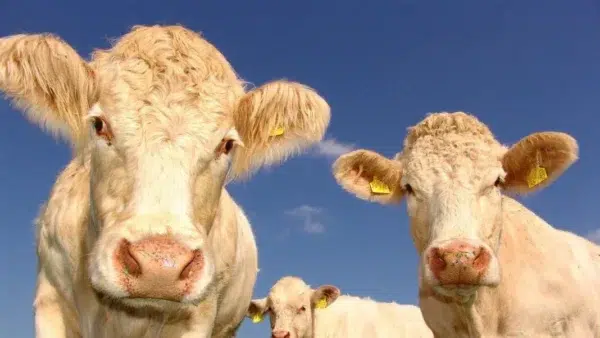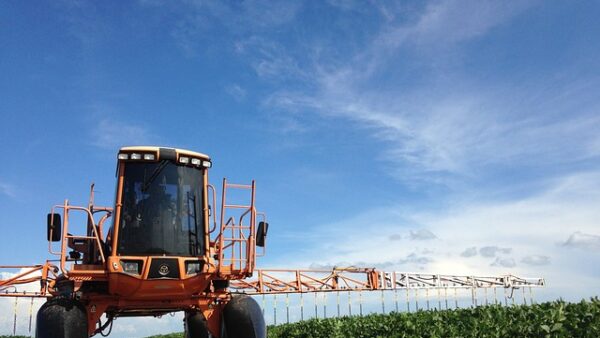An interview with Bob Streit on why biological pest management products are increasing in popularity.
For twenty years, Bob Streit served as a seed industry regional agronomist before becoming an independent consultant. As a result, the Ames, Iowa specialist is well-placed to speak to a multitude of genetic and marketing trends—and the rapidly expanding world of biological pest management products.
SEED WORLD: What’s driving this strong interest in biological pest management?
Streit: I think we have a lot more maturity in the companies getting involved in this field. Because we’re seeing some significant economic benefits from these products, we’re suddenly getting more “mainstream” buy-in by some University people, especially those forward-thinking researchers who are willing to think outside the box. They’re realizing these are not hocus pocus products, but they actually do work, and they have a scientific background in their development.
SW: Are American farmers quick to pick up on these new technologies?
Streit: Anything but. In other countries, notably Brazil and Argentina, farmers are way ahead of us on the adoption of biological pest management strategies. Why? I see them as more intense producers. Their agronomists perhaps are also perhaps better-trained in this area because their teachers and professors do more hands-on teaching. They’re much more in the field, working with farmers and product specialists rather than sitting behind their desks. Also, our South American farmers are much more willing to scout their fields and visually spot the adjustments to make in their management practices.
SW: Should biological pest management strategies be adopted worldwide if we are to feed nine billion people by 2050?
Streit: I recently sat down with a guy who took no-till farming from Europe to Brazil. I asked him if Malthus would eventually be proven correct. The Malthus theory was simply that world population would eventually exceed world food production. He said, “Yes, most definitely, unless we find some new formulas for getting much more production from each parcel of land.”
Jerry Hatfield, former head of the United States Department of Agriculture Soil Tilth Center, simply says, “Traits are nice, traits are fancy, but if we’re going to feed this world in the future it’s because we finally decided to pay much more attention to the soil.” That means making our soils considerably richer in biological activity while also increasing the organic matter and carbon equivalent capacity so the soils hold more of the moisture that falls early in the season until it is needed later in the summer.
SW: So might these biological products make our crops more efficient during the hot and dry seasons such as growers experienced in 2012?
Streit: There’s only one piece of research so far on that question. That was done in Robert Kremer’s lab at the University of Missouri by a post-graduate PhD student. In lab work, the student found that certain traits bred into corn hybrids actually doubled the rate of water usage by the plant. And when we’re working on better water utilization by our corn hybrids, that is absolutely the wrong direction. Unfortunately, virtually all University researchers are forbidden to test that sort of question. Why? Because it might reflect badly on some of the genetic engineering traits already bred into the system.
“Biological science will become increasingly important in feeding the world—maybe even more so than genetic and trait engineering.”
– Bob Streit
SW: Because corn and wheat are major food crops worldwide are they best suited for the adoption of biological strategies?
Streit: Yes, most logically because that is where most of the work has been done so far. Cost-effective and measurable results are key to acceptance. And this is what’s happening. The Missouri soybean farmer getting 160 bushel yields uses a host of different inputs and different strategies. The timely application of certain biological products is part of his success. Yes, these new products will definitely be huge in significant yield increases down the road. I’m talking biologically-based hormonal products that will trigger biological responses in the targeted crop. Biological science will become increasingly important in feeding the world—maybe even more so than genetic and trait engineering.
SW: Are current USDA and Environmental Protection Agency policies encouraging the continued growth of biological pest management for American agriculture?
Streit: Yes. If a new herbicide or pesticide comes along and it is biologically based, EPA will fast-track that development, so much so that if the company with the new product asks for a label on three crops, EPA might grant a label for 20 crops. That’s how much EPA and USDA are on board in getting these new strategies into American crop production. And that is basically because these new products present little or no challenge to the environment and the soils which grow our crops. Part of the current problem is that we don’t have enough scientists and University researchers working in this area, partly because these are not high profile projects. That means they don’t generate as much grant money. And the reality is that grant money is absolutely needed to fund some of these projects.
Dick Hagen
Three More Perspectives on Biologicals
Charlie Hale, Becker Underwood
“We’re at the tip of the iceberg in regards to putting microbiological products and seed coatings into the mainstream of agriculture,” says Charlie Hale, marketing strategist for Becker Underwood. He views biological products as a new arena for generating extra performance, especially with soybeans where their biologicals are producing two to four bushel yield increases.
He refers to Integral and Subtilex as biological fungicides which act to suppress disease and enhance performance. “The bacteria actually grow with the roots, providing protection against fusarium and rhizoctonia. Integral is part of our Vault HP inoculant system marketed in the U.S. It also is being used on canola and soybeans in Canada. In virtually all situations these are seed treatment products applied by professional applicators and the seed companies,” he says.
Hale says there are also new trends emerging. “Furrow application of granules used to be common but we’re seeing a rapid move to liquid products and seed treatment applications. Planter box treatments by growers are pretty much a thing of the past,” says Hale. Enhancing the popularity of inoculant treatments has been our ability to extend the on-seed survival of rhizobia to 60, 90 or 120 days or more, and the various biological products have generally been able to demonstrate their value. Hale says several firms are now into biological products, with lots more to come. And the crop list for biological products continues to expand.
Dan Custis, Advanced Biological Marketing
“I see this entire biological industry as still being in the infant stage here in the United States, so I’m confident it will soon play a much bigger role in agriculture,” says Dan Custis, president
and CEO of ABM. “I’m cognizant of the comments, the arguments on both sides of this issue of the role of biological products. I simply maintain there has to be a place where you can integrate the technologies to maximize the farmer’s crop yields and his profitability.”
Custis says there’s been a lot of good genetic research done in corn, wheat, soybeans and other crops, in addition to good work in soil science on how to make our soils more productive. Trying to get these two groups together is where we are today, he says. “We’re making positive progress. Our challenge is to keep this very expensive seed viable once the farmer puts it in the soil,” says Custis. “But how do we get the geneticist, the soils science people, the herbicide scientist and the fertilizer companies working together on the same page, talking about how each of these components best integrates into a total system?
“Right now that’s what the farmer is doing every day. He’s constantly asking himself, “How I can best use all of these inputs to make my soils work better and maximize my yields?” None of us are smart enough to have the total answer,” adds Custis.
Custis predicts the biological industry will soon be a major player in getting more production out of U.S. and world agriculture. He thinks Europe is slightly ahead of U.S. agriculture on the adoption of biological products, primarily because Europe is still non-GMO in crop production.
“The entire ag industry is evolving on this issue of the various interactions of crop production,” says Custis. “We’re seeing a lot more integration of our products with the seed treatments of other companies like Bayer, Syngenta and BASF because these are companion products. I think we’ll see even more compatibility between the biological and other chemicals coming out from manufacturers. As this happens we extend the benefits of what a given seed can do for that individual farmer,” he says.
Dr. Bob Kremer, ARS/USDA, University of Missouri
According to Bob Kremer at the University of Missouri, there is increasing interest in biological pest management, “Because the farming community is becoming very much aware of the importance of biological processes in crop production and in the soil environment. Requests by agricultural groups for current information on soil health assessment and microbiological relationships with crop and soil management practices have increased in recent years,” he explains.
Kremer sees biological pest management strategies as a strong option for use in food production. “In rare situations where crop growth is hampered by a single pest and a biological approach is available to control that pest, then use of BPM as the main strategy would be advantageous,” he says. “Overall, having effective BPM strategies available for integration with other strategies and for use in cases whereby some pests develop resistance to conventional approaches is vital in current and future food production.”













